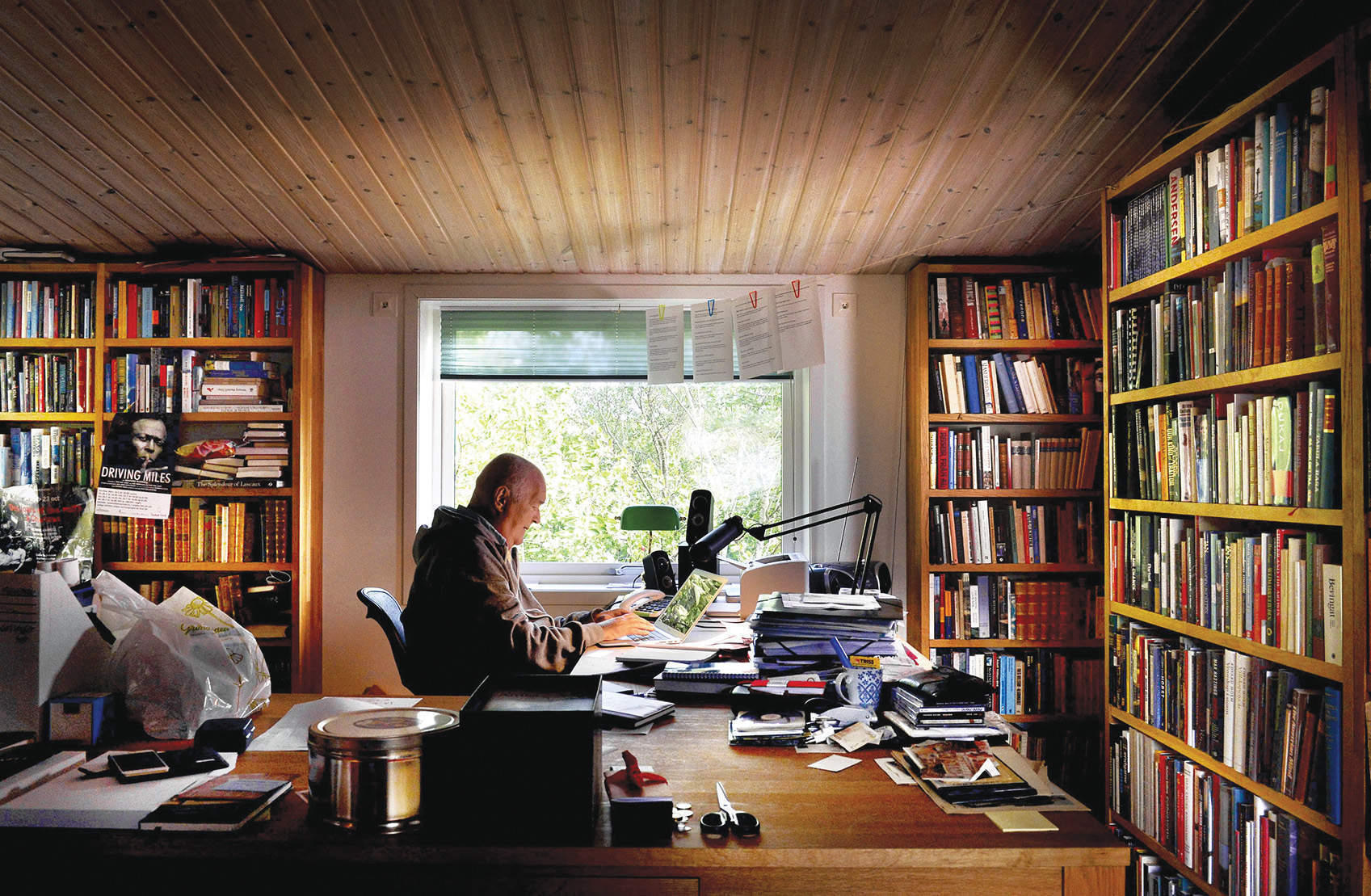
When the University of St Andrews gave Henning Mankell an honorary doctorate in 2008, it announced that the degree was awarded not only for his contribution to literature but also for the “practical exercise of conscience”. That is a formal way of saying “for being a good man”, which is what Mankell was. Now, in Quicksand, published in English less than four months after his death, the Swedish novelist gives us an insight into how he reacted to his diagnosis of cancer and reflected on his mortality. The result is an extraordinarily moving book that tells us a great deal about Mankell’s life and, incidentally, a lot about our lives, too.
Mankell is best known for his crime novels. The Wallander series stands high in the pantheon of “Nordic noir”, that flowering of fiction that has dominated the recent detective novel. But his writing was not the only focus of his public life. Mankell was also a political activist whose position on issues such as the Palestinian question was widely reported (in 2010, he was in the “Gaza Freedom Flotilla” and was deported back to Sweden when the Israel Defence Forces boarded the boats).
He did not mince his words and attracted enthusiastic support, as well as a measure of criticism. In sub-Saharan Africa, with which he had a long and profound association, he put his money to good use. Not only did he endow an orphanage but he gave considerable sums to support drama and literature in countries where funding of the arts is not a high priority. He established and managed an important theatre in Mozambique. He helped people in numerous ways. He was the opposite of the preachy, distant critic. He got his hands dirty.
So it was an engaged life that received notice of impending termination when that diagnosis of cancer was made. How did he react? This is a question that many of us ask of ourselves, whether or not we have reason to think that our appointment at the crematorium is imminent. For some, the consolations of religion are at hand but these were not available to Mankell. What happened in his case is that he was prompted to compose what is surely one of the most moving and intriguing farewell notes ever written. Such notes can be brief, they may be maudlin, they may be self-pitying. But this one is lengthy, unsentimental and devoid of any sense of being a victim. Mankell does not deny that death is approaching. He writes in detail about his treatment but his main concern is not so much himself as the world he has seen and engaged with in a remarkably full life.
A lot of it is chatty reminiscing – and no less fascinating for that – but there are themes that recur in the 67 short chapters of the book. One of these, perhaps unsurprisingly, is the brevity of human life and its insignificance in, for instance, the context of the great chunks of time between ice ages. Mankell wants us to see ourselves in proper perspective. We need to remind ourselves that we are on a brief journey through the world. If we see ourselves for what we are, our human pretensions are appropriately humbled and we become capable of sympathising with our fellows and understanding their suffering. Knowledge of just how frail and small we are and just how unappreciative we are of the world and its beauty makes it harder, in its turn, to accept indifference and injustice. Auden made a similar point about the effect of psychoanalytical insights in his poem marking Freud’s death. After Freud, he wrote, “the proud can still be proud but find it/a little harder”.
Another theme that runs through the book is an environmental one, in particular the disposal of radioactive waste. Mankell’s approach is very personal and tied to concrete examples of human unconcern over what present stupidity and selfishness will do to people who are yet to be born.
Yet the chief strength of this book – and what makes it such a beautiful, moving document – is in the descriptions that Mankell gives of the joy and suffering he has seen, especially in Africa. There is an extraordinary chapter that stays with the reader for a long time, in which he describes witnessing utter human desolation in an Austrian church and then, in a clearing area for displaced persons in Africa, encountering pure joy when members of a long-separated family were reunited. Mankell shows the practised eye of the novelist in his observation of a young woman finding the parents from whom war had separated her for a full decade of her 18 years. “In a way,” he writes, “it was a miracle. They had found one another again. The young girl could only express her joy by dancing and tugging at her clothes . . . I watched as the girl took her father by the hand and greeted him with a curtsey. Then she and her mother ran their fingertips cautiously over each other’s faces.”
Throughout Quicksand, there are scenes such as this: joy and triumph in the midst of suffering and loss. This grave book, intensely beautiful in its spirit, takes us to these places in the thoughtful company of a great soul.
Quicksand: What It Means to Be a Human Being by Henning Mankell is published by Harvill Secker (320pp, £16.99)
Alexander McCall Smith’s latest novel is The Woman Who Walked in Sunshine (Little, Brown)
This article appears in the 20 Jan 2016 issue of the New Statesman, The Middle East's 30 years war






